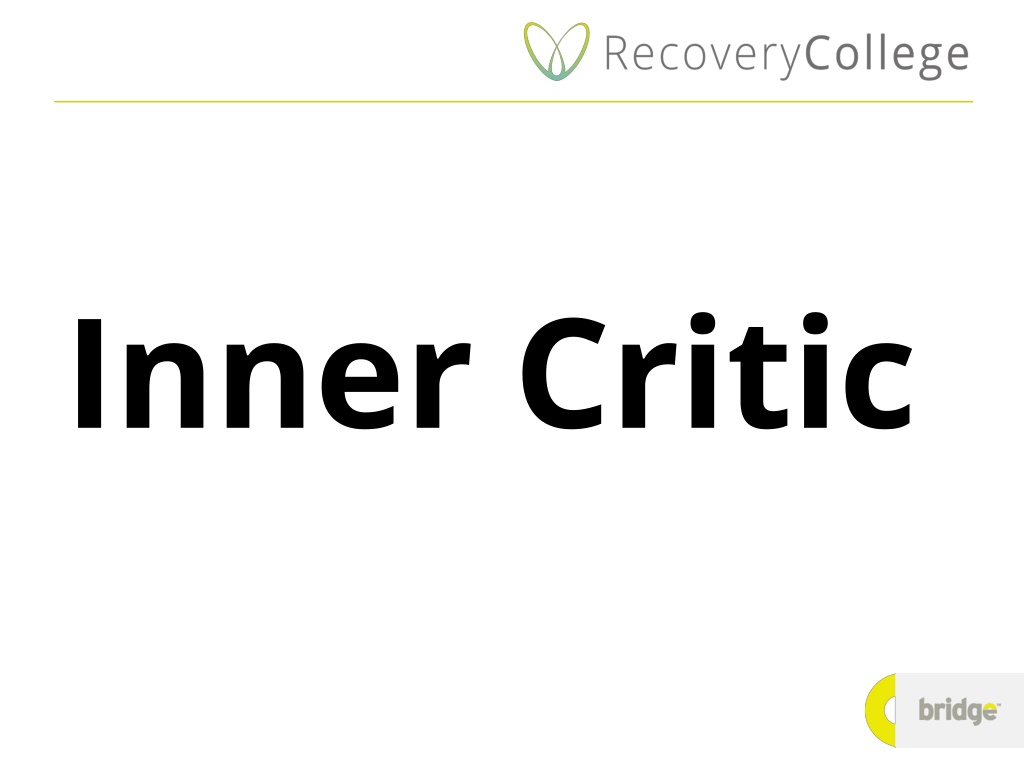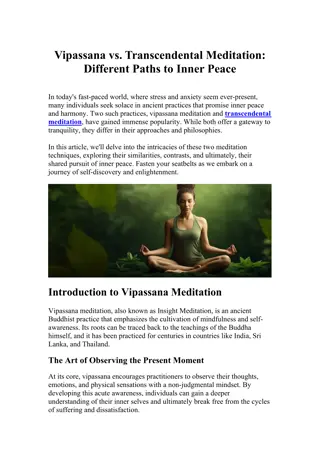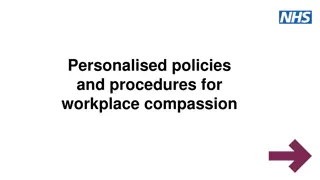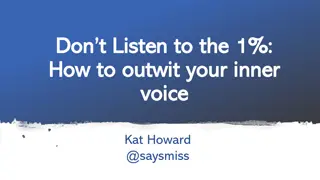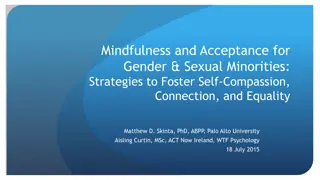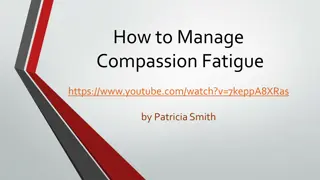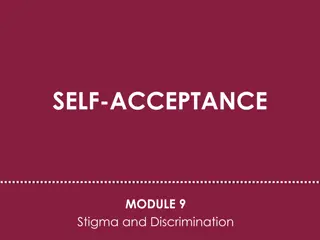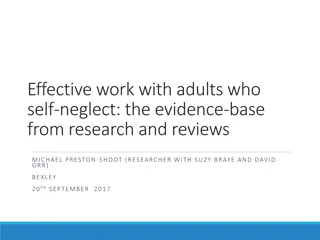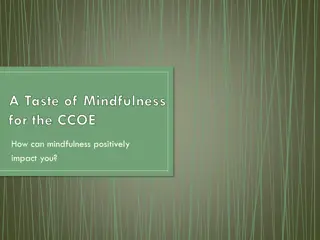Your Inner Critic and Building Self-Compassion
Explore the concept of the Inner Critic, its impact on self-perception, and practical strategies to develop self-compassion. Learn to identify critical self-talk, differentiate between the inner critic and your true self, and cultivate a positive internal dialogue to counter negativity effectively.
Download Presentation

Please find below an Image/Link to download the presentation.
The content on the website is provided AS IS for your information and personal use only. It may not be sold, licensed, or shared on other websites without obtaining consent from the author.If you encounter any issues during the download, it is possible that the publisher has removed the file from their server.
You are allowed to download the files provided on this website for personal or commercial use, subject to the condition that they are used lawfully. All files are the property of their respective owners.
The content on the website is provided AS IS for your information and personal use only. It may not be sold, licensed, or shared on other websites without obtaining consent from the author.
E N D
Presentation Transcript
Inner Critic The inner critic or "critical inner voice" is a concept used in popular psychology to refer to a subpersonality that judges and demeans a person. The Inner Critic s job is to protect you from harm/ensure you are ok. It does this by leveling every criticism it imagines anyone else could level at you (including any internal self) before you can make that mistake. It is ALWAYS acting from fear. The inner critic is not going to go away permanently nor are you. Often when you try to step out of your comfort zone, your inner critic will emerge as these voices are threatened by new experiences. Remember: Your thoughts are not necessarily facts.
Internal ally In what situations does your Inner Critic most often show up? What type of phrases does your Inner Critic tend to use? VS Inner critic
Activity: Imagine yourself in a situation in which you were disappointed in yourself. For instance because you made a mistake. What were the words you spoke to yourself? What was the tone of your (inner) voice? How did it make you feel? Words Tone Feelings accusatory hard failure reproachful angry shame attacking disappointed guilt panicked inferiority fear
Types of messages disapproving thoughts feelings and behaviours imperative you should negative predictions
What to do when self-doubt turns up 1. Label and notice. 2. Separate the I from the inner critic. 3. Create a character that personifies your inner critic. 4. Compassionately see your inner critic s motives. 5. Look for the humour. 6. Remove your critic from the scene. 7. Pantomime putting all your inner critic thoughts into a vessel (a cup, bowl, box). 8. Picture the voice receding into space. 9. Imagine you can simply turn down the volume on the critic s voice.
Characterisation What does your inner critic say? Draw your inner critic: How would you describe your inner critic? Anxious? Angry? People pleasing? Pick three words that describe it.
Getting to know your inner critic Focus on the thoughts where you put yourself down. Develop your ally. For every criticism write down what a good, supportive friend would say to you.
